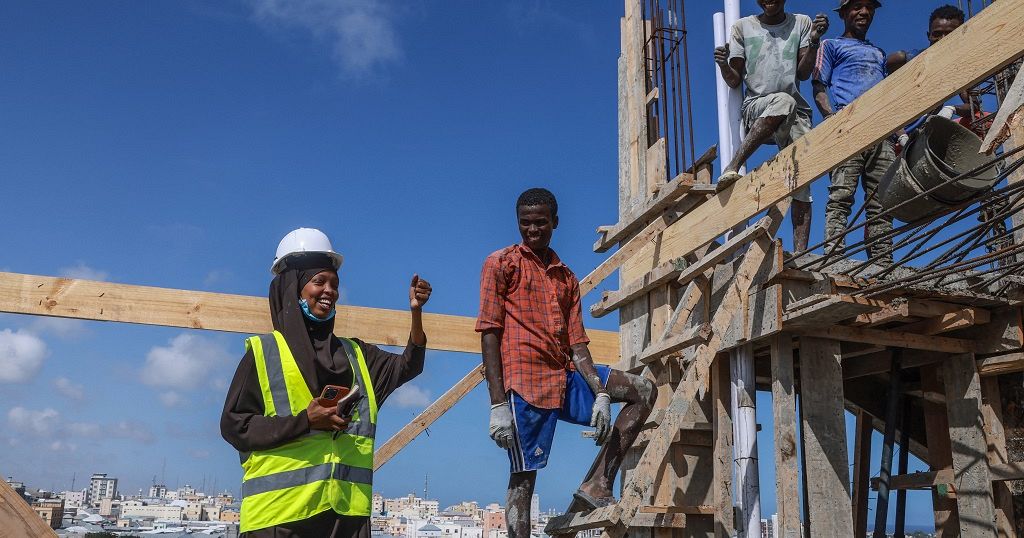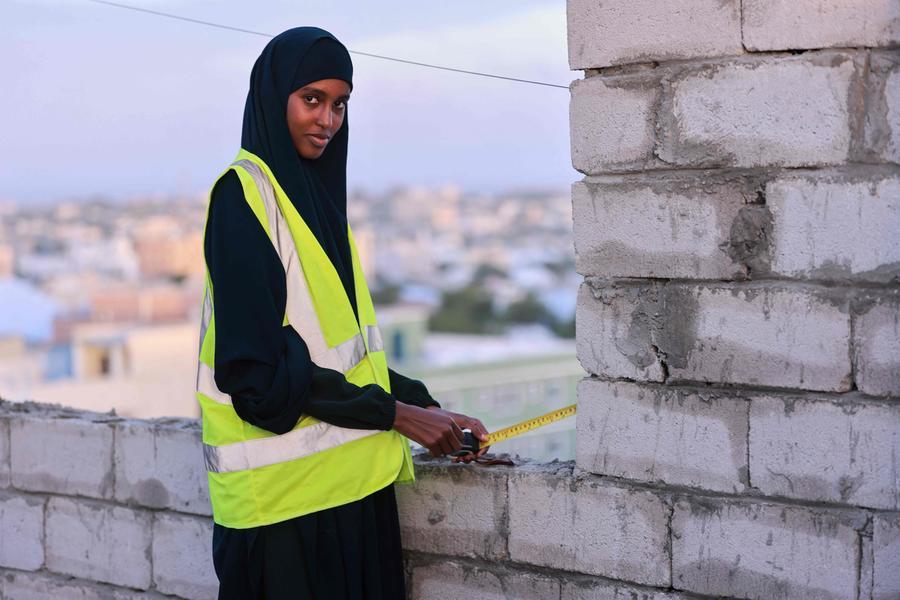Breaking Barriers with Bricks and Blueprints
In the heart of Mogadishu, Somalia’s capital, a silent revolution is taking shape — one that involves not just buildings but a redefinition of gender roles. Two young women Somali women engineers, Fathi Mohamed Abdi and Saadia Ahmed Omar, are at the forefront of this transformation, leading multi-million-dollar construction projects in a city once reduced to rubble by civil war.
At just 24, both engineers have overseen more than 30 major developments through their firm, Arkan Engineering Services, breaking stereotypes in a traditionally male-dominated field.

From Chaos to Construction
“When I was young, this city was in chaos. Now we are part of its reconstruction,” says Ms. Omar, wearing a hard hat atop her headscarf as she surveys a 10-story apartment block in Taleh, Hodan District.
For women like her and Ms. Abdi, the journey hasn’t been easy. Many companies initially rejected them, doubting their ability to endure the physical and mental demands of construction. “People would ask, ‘How can I trust my money or property with a young female engineer?’” recalls Ms. Abdi.
Why the Tide is Turning
The rapid urbanization of Mogadishu is leaving no time for outdated biases. According to World Bank data, remittances make up 16.7% of Somalia’s GDP, largely funding new real estate and infrastructure developments. With over 6,000 new buildings constructed in the last five years, there simply aren’t enough qualified professionals to meet demand — opening doors for women in engineering.
“There’s just too much work and too few engineers,” says Ibrahim Abdi Heyle, Chairman of the Somali Engineers Association. “We not only welcome women — we need them.”
The Roadblocks: Safety, Standards, and Sand

While modern towers are reshaping the skyline, veteran architect Siidow Cabdulle Boolaay warns that the boom could come at a price. “Mogadishu’s coastal sand is salty and not ideal for construction. Plus, many buildings lack basic safety features like fire extinguishers or proper electrical work,” he says.
Past developments went unregulated, but municipal authorities claim that’s changing. “Now no building goes up without approval,” says Salah Hassan Omar, a spokesperson for the Mogadishu mayor’s office. New zoning laws are in development to restrict where high-rises can be built.
Environmental Alarm Bells
With each new building comes another borehole, straining Mogadishu’s fragile groundwater system. UN climate adviser Christophe Hodder warns that unregulated drilling could spark a future water crisis. “In one small area, there may be 10 to 20 boreholes,” he said, calling for a coordinated water management strategy.
The government is now working with international partners on a new sewage infrastructure — a plan that may require demolishing older buildings and displacing communities.
Inspiration for the Next Generation
Ms. Abdi and Ms. Omar, both graduates of Plasma University, are now local icons for aspiring female engineers. “We’re not just building concrete,” says Ms. Omar. “We’re building hope.”
Despite living through civil war and insurgency, these women are helping redefine what post-conflict recovery can look like. “Somalia’s engineering profession collapsed 30 years ago. Today we’re reviving it,” says Mr. Heyle of the Somali Engineers Association.

A Vision for Tomorrow’s Mogadishu
Though al-Shabab militants still pose a threat, the engineers remain undeterred. Their mission: to make Mogadishu a model city for post-war reconstruction, powered by skill, vision, and inclusion.
“When I walk through the streets and see buildings I helped construct, I feel proud,” Ms. Omar shares. “We’ve gone from a war zone to a city full of cranes and ambition.”
As Ms. Abdi concludes, “We’re proving that women can not only design buildings but also lead Somalia’s future.”
Read also: Black women building Africa’s fashion empire.